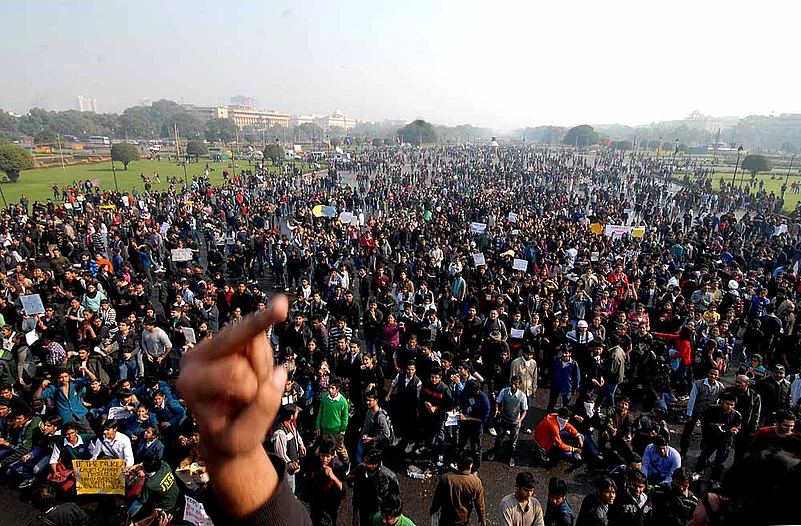Students were the key players in the recent agitations on the roads of the national capital. Jawaharlal Nehru University (JNU) and Delhi University (DU) served up the leaders and front-faces in the recent protests against the brutal rape of a girl in a bus and the sexual abuse of a minor in Delhi. Immediately after the first incident, it was not mainstream political faces but students’ organisations and unions that came out to express their anger. “There was unrest among the youth about the incidents. Many of those who participated in the protests for many days continuously were not members of any student organisation. They stood firm because they believed that politics may be bad, but the cause is good,” says Sunny Kumar, who is Delhi state unit secretary of the All India Students Association (AISA). Kumar played an important role in mobilising students from Delhi University for the protests, which saw the participation of students of St Stephen’s, Ramjas and Satyawati colleges, besides those from Jamia Millia Islamia.
The beauty of these protests was the coming together of organisations with different ideologies. “In the past few years, the perception was created that students are least concerned about issues related to the society. This has been proved wrong by the students. They have sent a very clear message that they are not sleeping,” says Rohit Chahal, Delhi state secretary of the Akhil Bharatiya Vidyarthi Parishad (ABVP), the students’ wing of the BJP.
But is it that easy to rule out differences and opportunism? As Sandeep Singh, ex-president of JNUSU (2007-2010), told Outlook, “Indeed there were differences; from ideology to the demands and slogans. We wanted a larger debate for a strong legal system to deal with such kind of crimes, whereas right-wing forces were chanting the slogans of death penalty.” But he agrees that the sheer force of the protest led to a dialogue between different points of view.
Even so, most agree that Delhi’s student activism isn’t yet a decisive force in transforming the political space. Shivani Nag of JNU, who was at the forefront of mobilising, campaigning and protesting against the rape, says, “Politics has to be through mass movements—but movements without politics can’t maintain strength for long.”


























